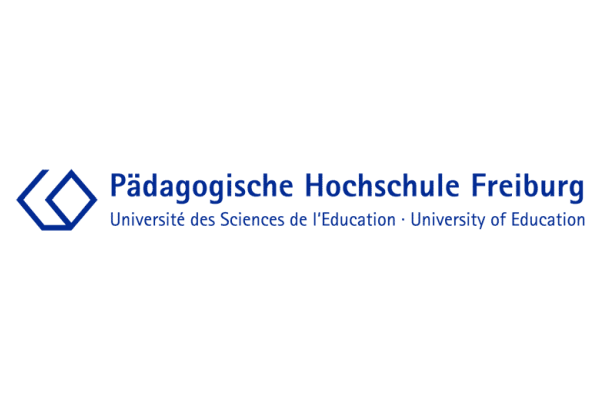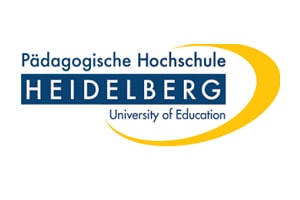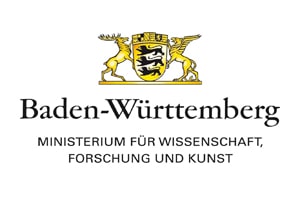
Research training group:
Diagnostic competences of teachers
DiaKom 1: Influences, structure and development
The first phase of the research training group was devoted to clarifying the influences and structures of as well as ways to develop diagnostic competence. A systematic approach to the manifold aspects of this bundle of constructs is provided by the distinction between diagnostic dispositions (knowledge, motivation), processes of diagnostic thinking (perception, interpretation, action) and the performance of diagnostic action.
Twelve subprojects combined recent research approaches and applied competence modelling methods, the recording of accuracy of judgement and the experimentally controlled variation of relevant influencing variables on the part of the teacher. In particular, the cooperation between psychology, educational sciences and research on domain-specific teaching and learning has expanded the evidence base and improved and systematized the theoretical understanding of diagnostic competence.
DiaKom 2: Diagnostic judgement processes as information processing and the significance of person and situation characteristics
In the second phase, the graduate school aimed to generate explanatory knowledge for the emergence of diagnostic judgements in typical diagnostic situations and for relevant diagnostic objects in various teaching subjects. From the research point of view, it contributes to the description of diagnostic judgements on the basis of cognitive modelling. From a practice perspective, the findings provide the basis for developing effective designs for promoting diagnostic competencies in teacher education.
Eight sub-projects were conducted at University of Education Freiburg and four sub-projects at Heidelberg University of Education from 2020 to 2023.
Umbrella publications
- Leuders, T. & Loibl, K. (2021). Beyond subject specificity – student and teacher thinking as sources of specificity in teacher diagnostic judgments. Research in Subject-matter Teaching and Learning (RISTAL), 4 (Editorial pp. 60–70). https://doi.org/10.23770/RT1842
- Loibl, K., Leuders, T. (2021). Modeling Teachers’ Diagnostic Judgments by Bayesian Reasoning and Approximative Heuristics. Research in Subject-matter Teaching and Learning (RISTAL), 4, 88–108. https://doi.org/10.23770/RT1844
- Loibl, K., Leuders, T., & Dörfler, T. (2020). A framework for explaining teachers’ diagnostic judgements by cognitive modeling (DiaCoM). Teaching and Teacher Education, 91, 103059. https://doi.org/10.1016/j.tate.2020.103059
- Leuders, T., Loibl, K., & Dörfler, T. (2020). Diagnostische Urteile von Lehrkräften erklären – Ein Rahmenmodell für kognitive Modellierungen und deren experimentelle Prüfung (Editorial). Unterrichtswissenschaft, 48(4), 493-502. https://doi.org/10.1007/s42010-020-00085-5
- Loibl, K., Leuders, T., & Dörfler, T. (2020). Kognitive Prozesse bei der Genese diagnostischer Urteile von Lehrkräften. Unterrichtswissenschaft, 48(4). https://doi.org/10.1007/s42010-020-00085-5
- Leuders T. & Loibl K. (2018). Erforschung diagnostischer Urteilsprozesse – Das DiaKom-Modell am Beispiel einer Studie zu intuitiven und analytischen Urteilen zur Bruchrechnung. In: Fachgruppe Didaktik der Mathematik der Universität Paderborn (Hrsg.). Beiträge zum Mathematikunterricht 2018 (S. 1163-1166). Münster: WTMVerlag.
- Leuders, T., Dörfler, T., Leuders, J., & Philipp, K. (2017). Diagnostic Competence of Mathematics Teachers: Unpacking a Complex Construct. In T. Leuders, T. Dörfler, J. Leuders, & K. Philipp (Eds.), Diagnostic Competence of Mathematics Teachers. Unpacking a Complex Construct in Teacher Education and Teacher Practice (pp. 332). New York: Springer. https://doi.org/10.1007/978-3-319-66327-2
- Leuders, T., Leuders, J., & Philipp, K. (Eds.). (2017). Diagnostic Competence of Mathematics Teachers: Unpacking a Complex Construct in Teacher Education and Teacher Practice. New York: Springer. https://doi.org/10.1007/978-3-319-66327-2
Publications of the subprojects
Monographs
- Becker, S. (2022). Der Einfluss von Stress auf diagnostische Urteilsprozesse bei Lehrkräften [The Influence of Stress on Diagnostic Judgment Processes in Teachers]. Springer. https://doi.org/10.1007/978-3-658-36780-0.
- Hahn, M. (2021). Transfer von Facetten des pedagogical content knowledge im Sachunterricht [Transfer of Facets of Pedagogical Content Knowledge in Science Education]. https://phfr.bsz-bw.de/frontdoor/deliver/index/docId/946/file/Diss_Miriam_Hahn_2021.pdf
- Schaffert, U. (2022). Erwerb Diagnostischer Kompetenz im Sachunterricht. Wissensvernetzung durch Unterstützung bei der Wissensreorganisation [Acquisition of Diagnostic Competence in Science Education. Knowledge Networking through Support in Knowledge Reorganization]. Wiesbaden: Springer VS; https://doi.org/10.1007/978-3-658-39063-1
Submitted papers (under peer-review)
- Brunner, K., Obersteiner, A., & Leuders, T. (subm.). How pedagogical content knowledge sharpens teachers’ views when judging mathematical tasks: An eye-tracking study.
- Hoppe, T., Seidel, T., Renkl, A., & Rieß, W. (subm.) Advancing pre-service science teachers’ skills to assess student thinking on-the-fly through practice-based learning.
- Leukel, C., Loibl, K., & Leuders, T. (subm.). Förderung diagnostischer Kompetenzen von Sportlehrkräften – Entwicklung und Evaluation einer 4C/ID-basierten, digital-gestützten Fortbildung [Promotion of Diagnostic Competences of Physical Education Teachers – Development and Evaluation of a 4C/ID-Based, Digitally Supported Training].
- Restayn, A., Moore, A., & Köpfer, A. (subm.). Autism, Body and Space – How teachers’ ability expectations performatively shape and contain the autistic body in school spaces.
- Rieu, A., Leuders, T., & Loibl, K. (subm.). Urteilsverzerrungen beim Diagnostizieren von Fehlkonzepten bei Dezimalbrüchen [Judgment Biases in Diagnosing Misconceptions in Decimal Fractions].
Journal articles (peer-reviewed)
- Becker, S., Spinath, B., Ditzen, B., & Dörfler, T. (2022). Psychological stress = physiological stress? An experimental study with prospective teachers. Journal of Psychophysiology, 37(1), 12–24.
- Brunner, K., Obersteiner, A., Leuders, T. (2021). How prospective teachers detect potential difficulties in mathematical tasks – an eye tracking study. Research in Subject-matter Teaching and Learning (RISTAL), 4, 109–126.
- Hoppe, T. & Rieß, W. (2020). Evaluation und Förderung von Facetten einer Nachhaltigkeitskompetenz bei Schülerinnen und Schüler der Sekundarstufe I. Zeitschrift für Didaktik der Biologie (ZDB) – Biologie Lehren und Lernen, 25, 27-44.
- Hoppe, T., Renk, A., Seidel, T., Rettig, S. & Rieß, W. (2020). Exploring How Teachers Diagnose Student Conceptions about the Cycle of Matter. Sustainability, 12(10), 4184.
- Hoppe, T., Renkl, A. & Rieß, W. (2020). Förderung von unterrichtsbegleitendem Diagnostizieren von Schülervorstellungen durch Video- und Textvignetten. Unterrichtswissenschaft, 48, 573-597.
- Leuders, T. & Loibl, K. (2021). Beyond subject specificity – student and teacher thinking as sources of specificity in teacher diagnostic judgments. Research in Subject-matter Teaching and Learning (RISTAL), 4 (Editorial pp. 60–70).
- Leuders, T., & Loibl, K. (2020). Processing probability information in non-numerical settings – teachers’ bayesian and non-bayesian strategies during diagnostic judgment. Frontiers in Psychology, 11, 678. doi.org/10.3389/fpsyg.2020.00678
- Leuders, T., Loibl, K., & Dörfler, T. (2020). Diagnostische Urteile von Lehrkräften erklären – Ein Rahmenmodell für kognitive Modellierungen und deren experimentelle Prüfung. Editorial. Unterrichtswissenschaft, 48, 493-502.
- Leuders, T., Loibl, K., Sommerhoff, D., Herppich, S., & Praetorius, A.-K. (2022). Toward an Overarching Framework for Systematizing Research Perspectives on Diagnostic Thinking and Practice. Journal für Mathematik-Didaktik, 43(1), 13-38.
- Leukel, C., Leuders, T., Bessi, F., & Loibl, K. (2023). Unveiling cognitive aspects and accuracy of diagnostic judgments in physical education teachers assessing different tasks in gymnastics Running head: Diagnostics in physical education teachers. Frontiers in Education, 8, 1162499. https://doi.org/10.3389/feduc.2023.1162499
- Lohse-Bossenz, H., Bloss, C. & Dörfler, T. (2022). Constructing multi-theory vignettes to measure the application of knowledge in ambivalent educational situations. Frontiers in Education, 7, 1-12.
- Loibl, K., & Leuders, T. (2021). Modeling teachers’ diagnostic judgments by bayesian reasoning and approximative heuristics. Research in Subject-matter Teaching and Learning (RISTAL), 4, 88-108.
- Loibl, K., Leuders, T. (2021). Modeling Teachers’ Diagnostic Judgments by Bayesian Reasoning and Approximative Heuristics. Research in Subject-matter Teaching and Learning (RISTAL), 4, 88–108.
- Loibl, K., Leuders, T., & Dörfler, T. (2020). A framework for explaining teachers’ diagnostic judgements by cognitive modeling (DiaCoM). Teaching and Teacher Education, 91, 103059. doi.org/10.1016/j.tate.2020.103059
- Restayn, A., Köpfer, A. & Wittwer, J. (2022). Der ‚autistische Körper’ – Eine empirische Perspektivierung vor dem Hintergrund schulischer Fähigkeitserwartungen. Zeitschrift für Disability Studies, 1(2). https://doi.org/10.15203/ZDS_2022_2.05
- Rieu, A., Leuders, T., & Loibl, K. (2022). Teachers’ diagnostic judgments on tasks as information processing – The role of pedagogical content knowledge for task diagnosis. Teaching and Teacher Education, 111, 103621. https://doi.org/10.1016/j.tate.2021.103621
- Rieu, A., Loibl, K., & Leuders, T. (2020). Förderung diagnostischer Kompetenz von Lehrkräften bei Aufgaben der Bruchrechnung. HLZ – Herausforderung Lehrer*innenbildung, 3(1),492-509.
- Rieu, A., Loibl, K., Leuders, T., & Herppich, S. (2020). Diagnostisches Urteilen als informationsverarbeitender Prozess – Wie nutzen Lehrkräfte ihr Wissen bei der Identifizierung und Gewichtung von Anforderungen in Aufgaben? Unterrichtswissenschaft, 48, 503–529.
- Schreiter, S. & Vogel, M. (2023). Eye-tracking measures as indicators for a local vs. global view of data [Special Issue: Eye-tracking for STEM Education Research. New Perspectives]. Frontiers in Education, 7, 1–11. https://doi.org/10.3389/feduc.2022.1058150
- Schreiter, S., Vogel, M., Rehm, M. & Dörfler, T. (2021). Teachers’ diagnostic judgment regarding the difficulty of fraction tasks: A reconstruction of perceived and processed task characteristics. Research in Subject-matter Teaching and Learning (RISTAL), 4, 127-146.
- Schreiter, S., Vogel, M., Rehm, M. & Dörfler, T. (2022). Die Rolle des Wissens angehender Mathematiklehrkräfte beim Diagnostizieren schwierigkeitsgenerierender Aufgabenmerkmale. Erkenntnisse aus Eye-Tracking Stimulated Recall Interviews. Journal für Mathematik-Didaktik, 43(1), 101-133.
- Wirth, S., Friesen, M., Philipp, K. & Streit, C. (2023). Wie kann die diagnostische Kompetenz von Lehr-kräften mit Text-Bild-Vignetten gefördert werden? Konzeption und Erprobung einer Lerngelegenheit für angehende Mathematiklehrkräfte in der Primarstufe. HLZ – Herausforderung Lehrer*innenbildung, 6(1), 363–399. https://doi.org/10.11576/hlz-6245
- Witzigmann, S., & Sachse, S. (2020). Verarbeitung von Hinweisreizen beim Beurteilen von mündlichen Sprachproben von Schülerinnen und Schülern durch Hochschullehrende im Fach Französisch. Unterrichtswissenschaft, 48, 551-571.
- Witzigmann, S., & Sachse, S. (2021). Diagnostic competencies of prospective teachers of French as a foreign language: judgement of oral language samples. Research in Subject-matter Teaching and Learning (RISTAL), 4(1), 71-87.
Book contributions
- Leuders, T., Dörfler, T., Leuders, J., & Philipp, K. (2017). Diagnostic Competence of Mathematics Teachers: Unpacking a Complex Construct. In T. Leuders, T. Dörfler, J. Leuders, & K. Philipp (Eds.), Diagnostic Competence of Mathematics Teachers. Unpacking a Complex Construct in Teacher Education and Teacher Practice (pp. 332). New York: Springer.
- Leuders, T., Leuders, J., & Philipp, K. (Eds.). (2017). Diagnostic Competence of Mathematics Teachers: Unpacking a Complex Construct in Teacher Education and Teacher Practice. New York: Springer.
- Restayn, A., Köpfer, A. & Wittwer, J. (2022). Von „Einsteigerautisten“, „sozialen Analphabeten“ und „Grenzkindern“ – Die Kategorie ‚Autismus‘ aus Sicht von Grundschullehrkräften. In T. Müller, C. Ratz, R. Stein & C. Lüke (Hrsg.), Sonderpädagogik – zwischen Dekategorisierung und Rekategorisierung (S. 240-250). Julius Klinkhardt.
- Schreiter, S., Vogel, M., Rehm, M. & Dörfler, T. (2022). Fachlich vs. Instruktional: Welche Aufgabenmerkmale werden bei der Schwierigkeitseinschätzung von Bruchrechenaufgaben identifiziert und evaluiert? Eine Studie mit Eye-Tracking Stimulated Recall Interviews. In P. Klein, N. Graulich, J. Kuhn, M. Schindler (Hrsg.), Eye Tracking in der Mathematik- und Naturwissenschaftsdidaktik: Forschung und Praxis (pp. 159–175). Springer Nature. https://rdcu.be/c55aT
Conference proceedings
- Becker, S., & Dörfler, T. (2020). Schwierigkeitseinschätzung von Textaufgaben unter Stress – eine Eye Tracking-Studie. In H.-S. Siller, W. Weigel, & J. F. Wörler (Hrsg.), Beiträge zum Mathematikunterricht 2020, 105–108, WTM
- Becker, S., & Dörfler, T. (2022). Teachers‘ judgment accuracy of word problems and influencing task features. In C. Fernández, S. Llinares, A. Gutiérrez, & N. Planas (Eds.), Proceedings of the 45th Conference of the International Group for the Psychology of Mathematics Education, Vol. 2, pp. 67–74. PME.
- Becker, S., Dreher, A., & Obersteiner, A. (2021). How do time pressure and episodic knowledge influence how teachers respond to student thinking. In M. Inprasitha, N. Changsri, & N. Boonsena (Eds.), Proceedings of the 44th Conference of the International Group for the Psychology of Mathematics Education, Vol. 1, 127–128. PME.
- Becker, S., Dreher, A., & Obersteiner, A. (2022). Adaptive Lernimpulse: eine empirische Studie zum Umgang mit Fehlvorstellungen im Bereich Brüche. In H.-S. Siller, W. Weigel, & J. F. Wörler (Hrsg.), Beiträge zum Mathematikunterricht 2022, WTM.
- Becker, S., Dreher, A., & Obersteiner, A. (2022). Adaptive teaching practices: an experimental study on pre-service teachers’ noticing of students’ thinking. In C. Fernández, S. Llinares, A. Gutiérrez, & N. Planas (Eds.), Proceedings of the 45th Conference of the International Group for the Psychology of Mathematics Education, Vol. 4, pp. 333. PME.
- Becker, S., Dreher, A., & Obersteiner, A. (2022). Eye tracking – promising method for analyzing mathematics teachers’ assessment competencies? ETRA ‘22: ACM Symposium on Eye Tracking Research & Application, 52, pp. 1–4. https://doi.org/10.1145/3517031.3529244.
- Becker, S., Obersteiner, A., & Dreher, A. (2023). Pre-service teachers’ adaptive teaching of fractions: a vignette-based experimental study. In M. Ayalon, B. Koichu, R. Leikin, L. Rubel, & M. Tabach (Eds.), Proceedings of the 46th Conference of the International Group for the Psychology of Mathematics Education, Vol. 2, pp. 99–106. PME.
- Leuders T., & Loibl K. (2018). Erforschung diagnostischer Urteilsprozesse – Das DiaKom-Modell am Beispiel einer Studie zu intuitiven und analytischen Urteilen zur Bruchrechnung. In Fachgruppe Didaktik der Mathematik der Universität Paderborn (Hrsg.) Beiträge zum Mathematikunterricht 2018 (S. 1163 – 1166). Münster: WTM-Verlag.
- Lutz, M., Lohse-Bossenz, H. & Rehm, M. (2023). Der Einfluss des Professionswissens angehender Chemielehrkräfte auf deren diagnostische Urteile beim Umgang mit Lernendenvorstellungen. In H. van Vorst (Hrsg.), Lernen, Lehren und Forschen in einer digital geprägten Welt. Gesellschaft für Didaktik der Chemie und Physik, Jahrestagung in Aachen 2022. Duisburg-Essen.
- Restayn, A., Köpfer, A. & Witter, J. (2023). Autismus und schulische Inklusion – Einfluss subjektiver Theorien von angehenden Lehrpersonen auf die Beurteilung von Schüler*innen im Autismus-Spektrum an Grundschulen. In L. Tebartz van Elst, M. Noterdaeme, & L. Poustka (Hrsg.), Wissenschaftliche Tagung Autismus-Spektrum. Autismus in Psychotherapie und Psychosomatik (S. 128). WGAS.
- Rieu, A., Leuders, T., & Loibl, K. (2022). Judgment bias in diagnosing misconceptions with decimal fractions. In Twelfth Congress of the European Society for Research in Mathematics Education (CERME12). Bozen-Bolzano, Italy. hal-03753460
- Rieu, A., Loibl, K., & Leuders, T. (2020). Professionelle Kompetenzen von Lehrkräften beim Urteilen über Aufgabenschwierigkeit. In Fachgruppe Didaktik der Mathematik der Universität Würzburg (Hrsg.), Beiträge zum Mathematikunterricht 2020 (S. 1177-1180). Münster: WTM-Verlag.
- Rieu, A., Loibl, K., Leuders, T., & Herppich, S. (2019). Wahrnehmung und Verarbeitung von Aufgabenmerkmalen beim diagnostischen Urteilen – Einflüsse von fachdidaktischem Wissen und Beurteilungszeit. In A. Frank, S. Krauss & K. Binder (Hrsg.), Beiträge zum Mathematikunterricht 2019 (S. 1095 – 1098). Münster: WTM-Verlag.
- Schreiter, S. & Vogel, M. (2023). Statistical thinking and viewing patterns when comparing data distributions: an eye-tracking study with 6th and 8th graders. Proceedings of the 46th Conference of the International Group for the Psychology of Mathematics Education (PME) (pp. 179–186).
- Schreiter, S., & Vogel, M. (2022). Drawing inference from data when comparing groups: an Eye-Tracking study. Proceedings of the 45th Conference of the International Group for the Psychology of Mathematics Education (PME) (vol. 4, p. 284).
- Schreiter, S., & Vogel, M. (2022). Visuelle Aufmerksamkeit und statistisches Denken beim Verteilungsvergleich: Eine Eye-Tracking Studie. Beiträge zum Mathematikunterricht 2022 (pp. 1201–1204).
- Schreiter, S., Vogel, M., & Rehm, M. (2020). Diagnostische Lehrerurteile zur Schwierigkeit von Bruchrechenaufgaben. In H.-S Siller., W. Weigel, J. F. Wörler (Hrsg.), Beiträge zum Mathematikunterricht 2020 (S. 1233–1236). WTM-Verlag.
- Schreiter, S., Vogel, M., Rehm, M., & Dörfler, T. (2021). Through the eyes of prospective teachers: Judging task difficulties in the domain of fractions. Proceedings of the 44th Conference of the International Group for the Psychology of Mathematics Education (PME) (vol. 4, pp. 17–24).
- Schreiter, S., Vogel, M., Rehm, M., & Dörfler, T. (2022). Improving pre-service teachers’ diagnostic judgments regarding task difficulties in the domain of fractions and angles. A process-oriented investigation with Eye-Tracking. Proceedings of the Twelth Congress of the European Society for Research in Mathematics Education (CERME12) (pp. 1–10). https://hal.archives-ouvertes.fr/hal-03744869
- Wirth, S., Friesen, M., Philipp, K. & Streit, C. (2022). Pre-Service Teachers’ Use of Information when Diagnosing First Graders’ Number Sense. In C. Fernández, S. Llinares, A. Gutiérrez, & N. Planas (Eds.), Proceedings of the 45th Conference of the International Group for the Psychology of Mathematics Education (Vol. 4, p. 319). PME.
- Wirth, S., Friesen, M., Philipp, K. & Streit, Ch. (2022): Pre-service teachers’ use of in-formation when diagnosing first graders’ number sense in text-image vignettes. In Hodgen, J., Geraniou, E., Bolondi, G. & Ferretti, F. (Eds.), Proceedings of the Twelfth Congress of the European Society for Research in Mathematics Education (CERME12). Free University of Bozen-Bolzano and ERME.




